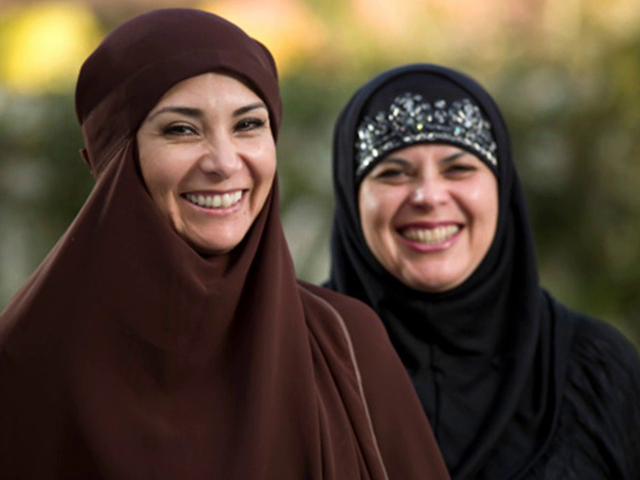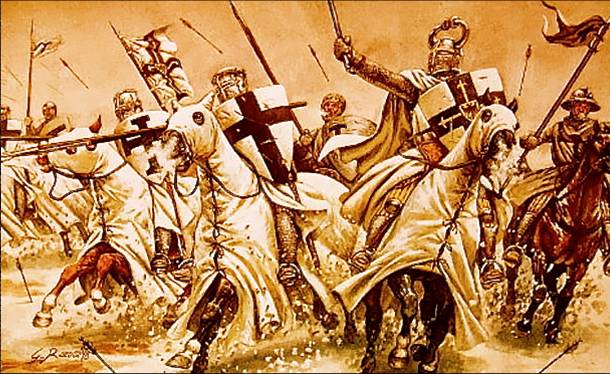In the past week, there have been several notable comments about Muslims. Donald Trump made a statement that he believes all Muslims should be blocked from entering the United States.
Additionally, the president of Liberty University - Jerry Falwell Jr. - said that Christians should arm themselves so they can 'end those Muslims'.
I can understand why such comments and dispositions would be taken. Fear makes us want to put big, strong walls around the things we care about.
I'm sure these two men care about the lives of Americans and are simply reacting with ideas on how to protect the lives of Americans. It could be asked whether their idea of an American is a person who looks like them, thinks like them and worships like them, excluding any others. But that is a conversation which I have no way to explore without any personal contact with these men.
In their fear, it seems these men have lost any perspective which may offer ways to demonstrate compassion even in the most difficult of times.
I want to share with you some reasons that I do not hate Muslims going beyond basic biblical reasons like the fact that Jesus forgave his own murderers and how he told us to love our enemies. (And I'm not implying that I consider all Muslims to be my enemy.)
I'm also not going to go statistical on you: 'a very small number of Muslim believers have radical ideology...'.
These are my own personal anecdotal reasons, because for some reason I have a hard time accepting what Jesus and/or wisdom has to say in many cases.
1. I've met many Muslims.
As a professor, I've had a number of Muslim students. As a minister, I've met Muslim refugees. As a graduate student, I visited a mosque during Friday prayers and spoke to the Imam.
When I say 'met', I don't mean encountered in passing. I've certainly interacted with many more Muslims in everyday life. When I say 'met' here, I mean I have spoken with them and gotten to know them at least a bit. I've heard their stories, learned about their thoughts and opinions, chatted and small talked.
Prepare to be amazed: they are "normal people".
Some are friendly, some are introverted. Some have shared with me how they wrestle with how to incorporate their faith into their everyday lives.
The Imam was quite suspicious of this outsider showing up to take pictures and ask interview questions, yet he set aside time to let me ask many questions in order to fulfill an assignment.
I was quite nervous the first time I set foot in a mosque. After leaving, I appreciated that it was full of people, and (if you'll forgive the tautology), people are people.
The Imam's assistant was a really friendly guy who made it possible for me to complete my assignment after several other places I had called didn't get back to me. I was talking to him about Muslim beliefs after my interview and he didn't get offended when I made a mistake about Muslim beliefs at one point.
2. I'm not a good judge of others.
In the final book of The Chronicles of Narnia, The Last Battle, C.S. Lewis tells the story of how Aslan (a Christ character) and Tash (a satan character) are at war.
Every person and talking animal in Narnia has chosen a side.
At the end of the book (spoiler, if you can spoil a 60 year old book) everyone finds themselves in the afterlife.
One of the soldiers who pledged his life and fought for Tash found himself standing in front of Aslan. Expecting to be condemned rather than welcomed into paradise, he is surprised when Aslan licks him on the forehead and says, "Son, thou art welcome".
Confused, the soldier tells Aslan that he had, in fact, served Tash. Aslan responds by saying, "all the service thou hast done to Tash, I account as service done to me." Aslan goes on to explain that the man was doing what he thought was honoring to the true deity. Had the man known that Aslan was the true ruler and creator of Narnia, he would have served Aslan instead.
Aslan finishes the exchange by saying, "unless thy desire had been for me thou woudst not have sought so long and so truly. For all find what they truly seek."
Lewis essentially says that God can choose to accept devotion as worship whether or not it was pointed in the right direction.
In other words, Christians believe that Jesus is the only way to the father - because Jesus specifically says this without compromise or exception. As a Christian, I believe this.
But while Jesus is the only way to God the father, Lewis seems to be asking, 'what if there are many ways to Jesus?'
What if one way to Jesus is offering genuine, sincere devotion to the best of your understanding?
I don't know if Lewis is right. I do know that Jesus says in several places that we may be surprised at who receives honor in the next life.
Let me be blunt: I'm not telling you whether Muslims are going to heaven or hell. I'm saying we all need Jesus. In the midst of that, I can respect genuine devotion toward God. I am hopeful that such genuine devotion points toward Jesus.
When I worked retail as a young man, we had secret shoppers who would come in to our store. They secretly sent reports to our corporate headquarters indicating whether the employees they had interacted with had fulfilled their job duties - greeting the customer, wearing a name tag, recommending purchases, etc.
It was always a game to try and figure out who a secret shopper was so we could give A+ service to that person and look good on the report. It was stressful until I had a manager tell me, "stop worrying about who the secret shopper is. Do your job for everyone and it won't matter."
We don't need to figure out who is going to be welcomed into the Kingdom of God. We are called to be ambassadors of it and invite everyone to the party being thrown there.
We have Good News to proclaim, not judgments to hand out. The scriptures are clear that only one person is qualified to hand out judgment, and I know for sure it isn't me.
Jesus was always shockingly accepting in his ministry. The people who were most offended, and subject to Jesus' frustrations were the religious people who thought they had the whole 'God thing' figured out.
In fact, they thought that being descendants of Abraham was a guarantee that they were cool with God.
Jesus hit them with what must have been a verbal and theological haymaker: "Don’t just say to each other, ‘We’re safe, for we are descendants of Abraham.’ That means nothing, for I tell you, God can create children of Abraham from these very stones.Even now the ax of God’s judgment is poised, ready to sever the roots of the trees. Yes, every tree that does not produce good fruit will be chopped down and thrown into the fire." (Matthew 3:9-10)
3. Christians have played the terrorist role.
I'm not talking about any recent events or small churches in Kansas that love hate speech.
I'm talking about the Crusades.
Atrocities, Christians killing, looting and plundering other Christians, kids being encouraged to go to war. These are some of the lowlights of official church activities in the second millennium.
I'm talking about heresy trials.
I highly recommend a book called Heretics by Jonathan Wright. It talks about how Christians set about to kill those who slightly disagreed with each other, using torture and painful murder.
In John 17:20-21, Jesus prays for everyone who will ever believe in him - that's us! A major part of his prayer is that we would live in unity with one another.
I gotta tell you, we still have a ways to go. I'm thinking if we focus on that, we could make a much bigger impact in the world instead of spending our time criticizing other faiths.
_____________
These are the reasons why I don't hate Muslims, above and beyond the biblical call of God to love others, even our enemies.
If your argument to this is that the point of the discussion is about protecting Americans, I would still respectfully push back against you.
I want my family to be safe, but I follow a Messiah who faced extreme violence with radical love and sacrifice. I'm not hoping to die, and I respect the role of the government in keeping its citizens safe - though I think we need to give consideration to how that should actually happen.
As an individual, I refuse to blame another group of people for what's wrong in our world. The Apostle Paul is very clear that our fight is never against other people.
My heart breaks when mass shootings and terrorist attacks and atrocities happen, both within and outside of the US.
But I will not turn to fear and anger in response. I will choose to hope that the God who promises to make all things new - to set all the wrongs to right will carry out this promise, and in the meantime, when I obey his teachings (like 'love your enemy'), I come closer to the abundant life he promises.
It's not easy, but if I'm going to follow a Messiah who tells me to be willing to take up my cross to be his follower, I must believe that he is pointing me in the direction of redemption, not just for me, but for all things.




